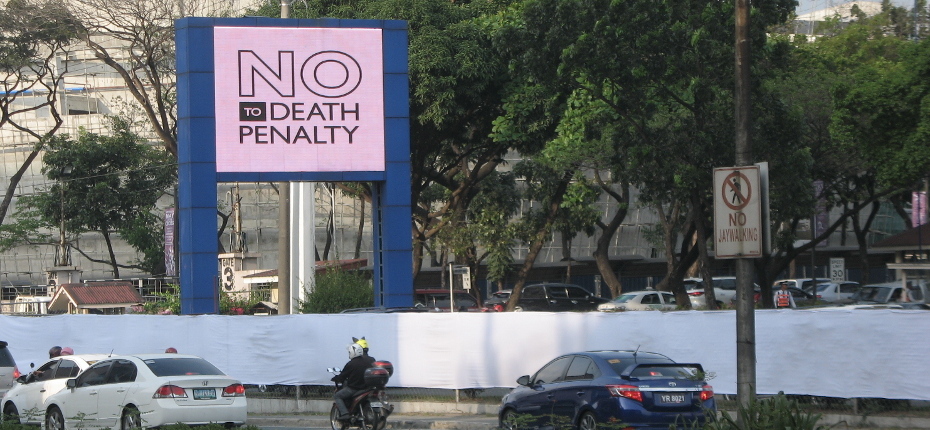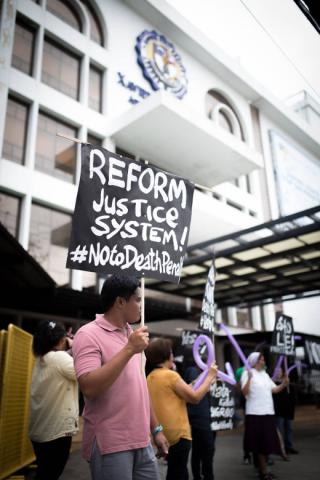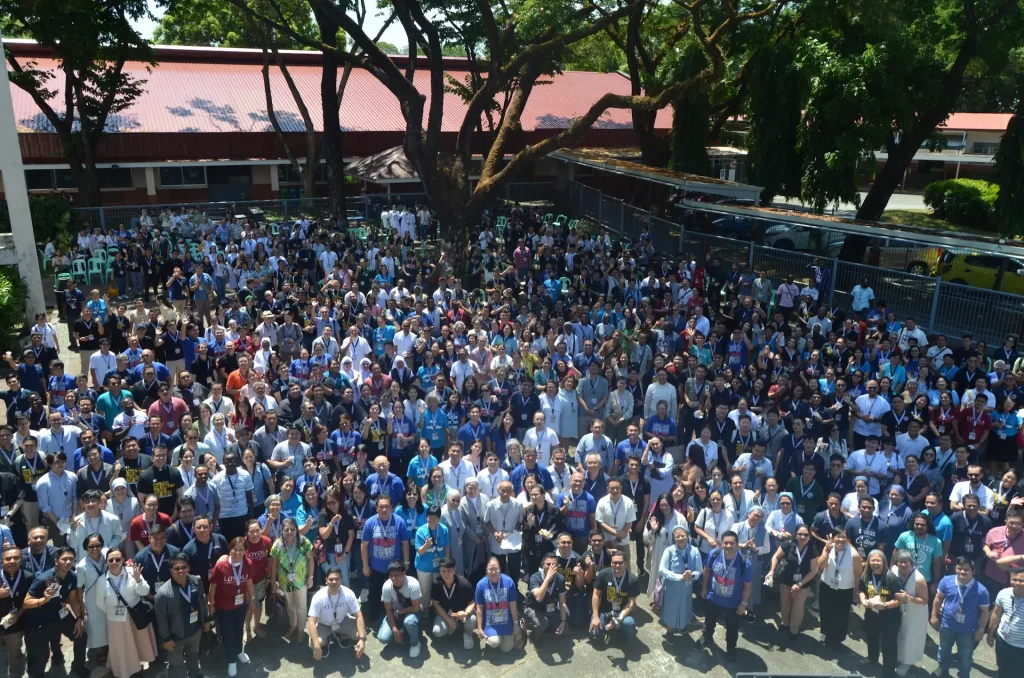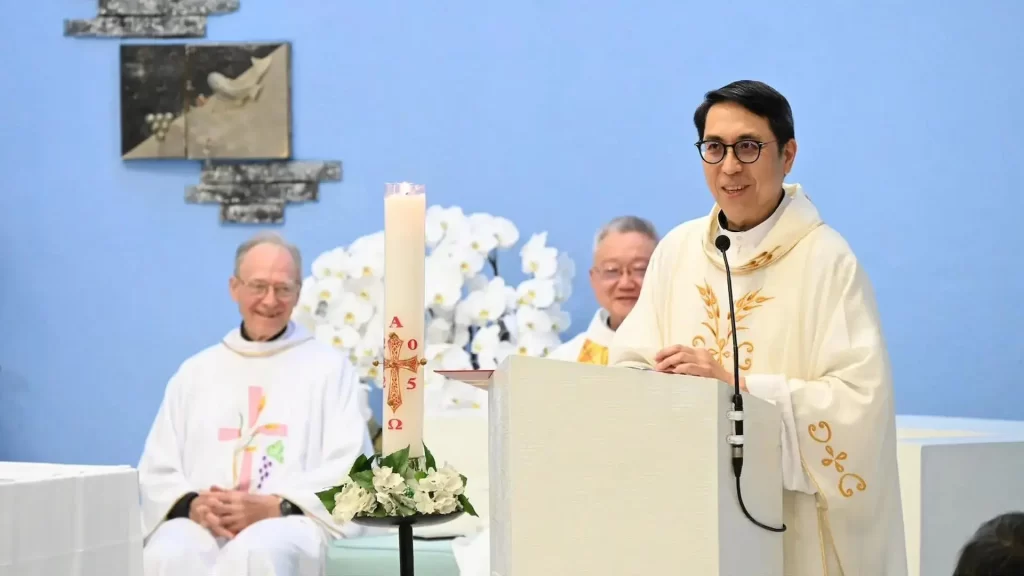
The prison compound has a capacity of about 10,000 inmates, but it is housing more than 24,000. The overcrowding means the inmates have to sleep in shifts.
The congestion also increases their risk of catching all kinds of infectious diseases, but the budget for medicine is only P7 (about 10 US cents) per inmate and the budget for food is only P50 (about US$1) per day.
“What can you hope to get out of that?” asked PJPS Executive Director Fr Eli Rowdy Lumbo SJ.
In his more than 20 years with the prison ministry, Fr Lumbo has learned to enter the world of the inmates.
“I have heard so many stories from them. Stories of how family and friends have abandoned them, of how they have been the cause of pain and suffering for the people who love them, of how they do not know what to do with their lives, of how they cannot undo their crimes … and yet in the darkness of their soul … God has been present and has given them hope.”

He also pointed out that data from the Supreme Court of the Philippines showed that seven out of 10 prisoners in death row were wrongly sentenced to death.
“Why would you implement the death penalty when there is a 70 percent chance of error?” he argued.
In January, PJPS issued a call to all Philippine Jesuit social apostolates and ministries to oppose the revival of the death penalty and make a stand to preserve the right to life. Jesuit schools, in particular, have responded by releasing statements and organising protest rallies. On March 8, a noise barrage was held simultaneously among Ateneo schools in the country to decry the passage of the death penalty bill in its third and final reading at the House of Representatives.
However, the bill still requires Senate approval before it can be signed into law and Fr Lumbo said they will “continue to fight and stand for life”. He also said that instead of reintroducing the death penalty, what is needed is reformation of the judiciary and the police.
PJPS believes that offenders can be reformed and rehabilitated.
“There are those who grew up on the streets, not having had the guidance of a parent, not having had the privilege of growing up in a family where love was nurtured, where love was experienced, and where right from wrong was taught.
“Is it not incumbent upon society to form or reform those who have gone astray, to teach those who were not taught and guide those who have made wrong decisions?” Fr Lumbo asked pointing out that the Philippines has “one of the lowest recidivism rates in the world because we are more humane”.
Even as he said this, Fr Lumbo acknowledged the pain of the victims.
“I know there are other stories to tell. And these other stories are the stories of the victims. Their stories are even more painful, more heart-wrenching more excruciating,” he said. “But my hope and prayer is that they also try to open their minds and hearts to why things happen when they do, why certain people go astray.”
This is what PJPS aspires to do – to reveal the humanity in the prisoners and challenge people to see the hurt, pain and regret within the prisoners themselves.
Main image: Ateneo de Manila University broadcast its opposition to the death penalty on its electronic signboard facing Katipunan Avenue
Related Story: Philippine Jesuits join bishops in opposing efforts to revive the death penalty






